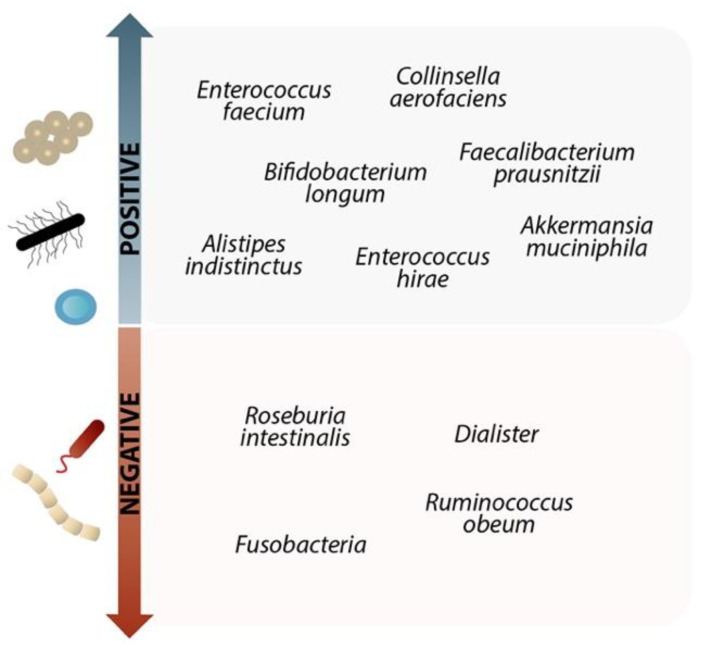Figure 2.
The impact of specific gut microbiomes on anti-PD1 and anti-PD L1 treatment. Due to the high presence of the following species on the “positive” side, immunotherapy is more effective. Administration of these species boosts the quantity of the tumor-specific T-cell response, increasing the amount of IFN-γ produced by the tumor and CTL infiltration, strengthening CTL priming, and enhancing the effectiveness of the anti-PD-L1 therapy. For melanoma patients undergoing combined anti-CTLA-4 and anti-PD-1 therapy, increased F. prausnitzii concentration may potentially be advantageous. Before treatment, the anti-PD-1 immunotherapy responses in patients with metastatic melanoma were already overrepresented by Bifidobacterium longum, Collinsella aerofaciens, and Enterococcus faecium. On the other hand, species on the “negative” side reduce the effectiveness of immunotherapy [100,101,102,103,104].

